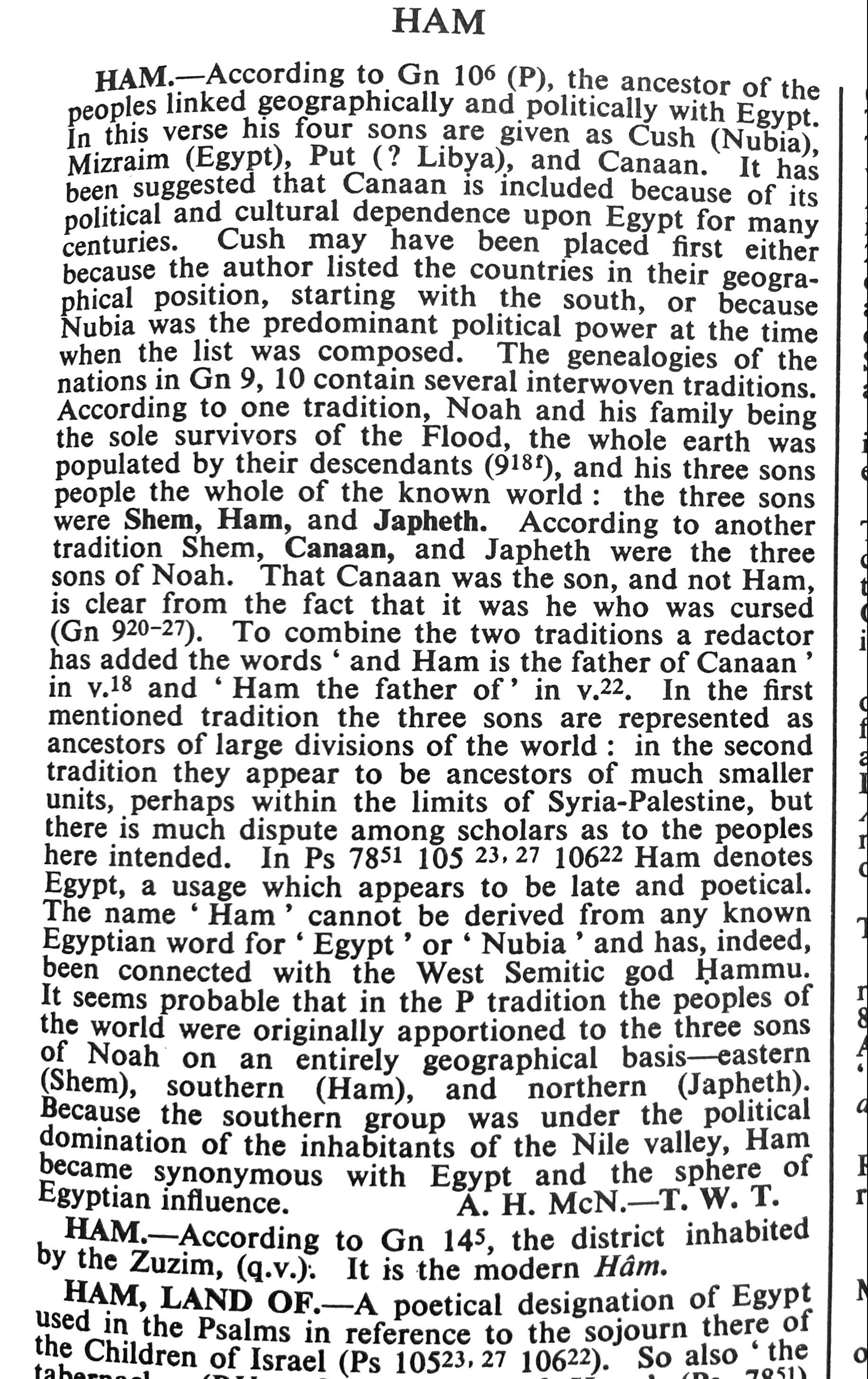Hastings' Dictionary of the Bible (1963 ed.) states that Ham's name is not derived from the Egyptian words for "Egypt" or "Nubia."
- Type
- Book
- Source
- Frederick C. Grant Non-LDS
- Hearsay
- DirectSecondary
- Reference
Frederick C. Grant and H. H. Rowley, Hastings' Dictionary of the Bible, revised edition (New York: Charles Scribner's Sons, 1963), 361
- Scribe/Publisher
- Charles Scribner
- Audience
- Reading Public
- Transcription
. . .
In Ps7851 105 23,27 10622 Ham denotes Egypt, a usage which appears to be late and poetical. The name ‘Ham’ cannot be derived from any known Egyptian word for ‘Egypt’ or ‘Nubia’ and has indeed been connected with the West Semitic God Ḥammu. It seems probable that in the P tradition the peoples of the world were originally apportioned to the three sons of Noah on an entirely geographical basis—eastern (Shem), southern (Ham), and northern (Japheth). Because the southern group was under the political domination of the inhabitants of the Nile valley, Ham became synonymous with Egypt and the sphere of Egyptian influence.
. . .
- Citations in Mormonr Qnas
The B. H. Roberts Foundation is not owned by, operated by, or affiliated with the Church of Jesus Christ of Latter-day Saints.

